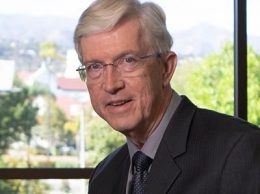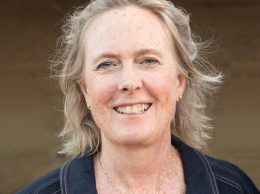Dubroff: Brown’s bid to fight climate change will be his legacy

Henry Dubroff
Gov. Jerry Brown has doubled down on his bet that climate change is the biggest issue facing California for the long run.
That’s the message from a just-ended legislative session that extended the state’s greenhouse gas emission rules to include a reduction that’s 40 percent below 1990 levels by 2030. The state already is on track to reach its initial goal of achieving 1990 levels by 2020, through a series of carbon reduction efforts and the promotion of alternative fuel vehicles.
Brown also signed AB 1613, a separate bill to begin spending $900 million from the state’s sometimes troubled cap-and-trade system for reducing greenhouse gasses — partly by expanding efforts to provide clean transportation and affordable housing to low income communities.
While the bill doesn’t go as far in curbing fossil fuel production as some anti-business Democrats would like, it cements the AB 32 caps on greenhouse gasses in place for a very long time and makes the reduction of carbon emissions an issue of economic justice. At least 25 percent of the proceeds from so-called cap-and-trade auctions will go to low-income communities, according to one of the bills he signed in Fresno on Sept. 13.
The governor is determined to make this his legacy. The state’s lingering severe drought, and massive losses of trees, part of the state’s natural carbon capture system, have made greenhouse gas emission reduction a personal quest.
The real question is whether his zeal to tackle climate change will hollow out the middle class and drive small businesses out of state.
Farmers will use robots
You can read similar themes into Brown’s signing of a highly controversial farmworker overtime bill.
The bill will drive plenty of farmers out of business and upend family traditions but it will also speed change in the way crops are planted and harvested. The solution for larger farmers will be to use more drones and mechanized systems to reduce labor and drive efficiency.
Eventually, it will be robots or a combination of robots and many fewer, highly skilled workers who will manage farms — incidentally using much less water and fuel to grow and harvest crops.
The downside is that farmworker overtime will displace thousands of workers — documented and undocumented — who have become part of well-established and fairly orderly systems for doing hard manual labor.
Musk suffers setbacks
One of the biggest beneficiaries of the Brown climate change initiative is Elon Musk, whose Tesla cars benefit from thousands of dollars in subsidies per unit sold.
Tesla’s battery “gigafactory,” now under construction in Nevada, may also provide a key product in electric power storage as more and more renewables come online.
But Musk has had a few rough weeks. Wall Street is skeptical about his plan to merge Solar City, a solar power company, with his car company. And it’s skeptical about whether Tesla can make money.
In early September, a rocket built by Space X, another Musk company, blew up on a launch platform at Cape Canaveral in Florida, setting back plans for a major satellite launch. Now a September launch at Vandenberg Air Force Base has been scrubbed and the talk is that investigating what went wrong with the Florida launch could ground the Space X fleet for a year.
• Reach Editor Henry Dubroff at [email protected].











